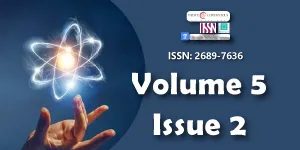Different approaches to system science
Main Article Content
Abstract
The goal of the paper is to present a new definition of a holistic approach to the description of complex systems including features such as emergent behavior, exaptation, contingency, self-organization, etc. The presented approach is based on concepts such as singularity (internal behavior of a partial system component without any links), duality (analyses of links between pairs of system components) and a plurality (links between clusters of system components). Energetics is presented as a new science (third-order cybernetics) using the results of the theory of complex systems connected with the algorithms of artificial intelligence so that a better coexistence between humans and machines occurs.
Downloads
Article Details
Copyright (c) 2022 Miroslav S, et al.

This work is licensed under a Creative Commons Attribution 4.0 International License.
Licensing and protecting the author rights is the central aim and core of the publishing business. Peertechz dedicates itself in making it easier for people to share and build upon the work of others while maintaining consistency with the rules of copyright. Peertechz licensing terms are formulated to facilitate reuse of the manuscripts published in journals to take maximum advantage of Open Access publication and for the purpose of disseminating knowledge.
We support 'libre' open access, which defines Open Access in true terms as free of charge online access along with usage rights. The usage rights are granted through the use of specific Creative Commons license.
Peertechz accomplice with- [CC BY 4.0]
Explanation
'CC' stands for Creative Commons license. 'BY' symbolizes that users have provided attribution to the creator that the published manuscripts can be used or shared. This license allows for redistribution, commercial and non-commercial, as long as it is passed along unchanged and in whole, with credit to the author.
Please take in notification that Creative Commons user licenses are non-revocable. We recommend authors to check if their funding body requires a specific license.
With this license, the authors are allowed that after publishing with Peertechz, they can share their research by posting a free draft copy of their article to any repository or website.
'CC BY' license observance:
|
License Name |
Permission to read and download |
Permission to display in a repository |
Permission to translate |
Commercial uses of manuscript |
|
CC BY 4.0 |
Yes |
Yes |
Yes |
Yes |
The authors please note that Creative Commons license is focused on making creative works available for discovery and reuse. Creative Commons licenses provide an alternative to standard copyrights, allowing authors to specify ways that their works can be used without having to grant permission for each individual request. Others who want to reserve all of their rights under copyright law should not use CC licenses.
Veverka M. Evolution by its own creator. Prostor. 2013.
Taleb NN. Procrustean bed - Philosophical and Practical Aphorisms, INCERTION, 2018.
Svitek M, Kosheleva O, Kreinovich V. As Complexity Rises, Meaningful Statements Lose Precision -- but Why?, Report number: UTEP-CS-21-81, 2021, University of Texas at El Paso, USA.
Kauffman S. The Fourth Law - Pathways to General Biology, Paseka, 2004.
Svitek M, Kosheleva O, Kreinovich V. Freedom of Will, Non-Uniqueness of Cauchy Problem, Fractal Processes, Renormalization, Phase Transitions, and Stealth Aircraft. Report number: UTEP-CS-22-58, 2022, University of Texas at El Paso, USA.
Ashby WR. Introduction to Cybernetics, New York, J. Wiley, 1956.
Vittkh VA. Evolution of Ideas in Management Processes in Society, From Cybernetics to Evergetics. https://doi.org/10.1007/s10726/014/9414/6.

